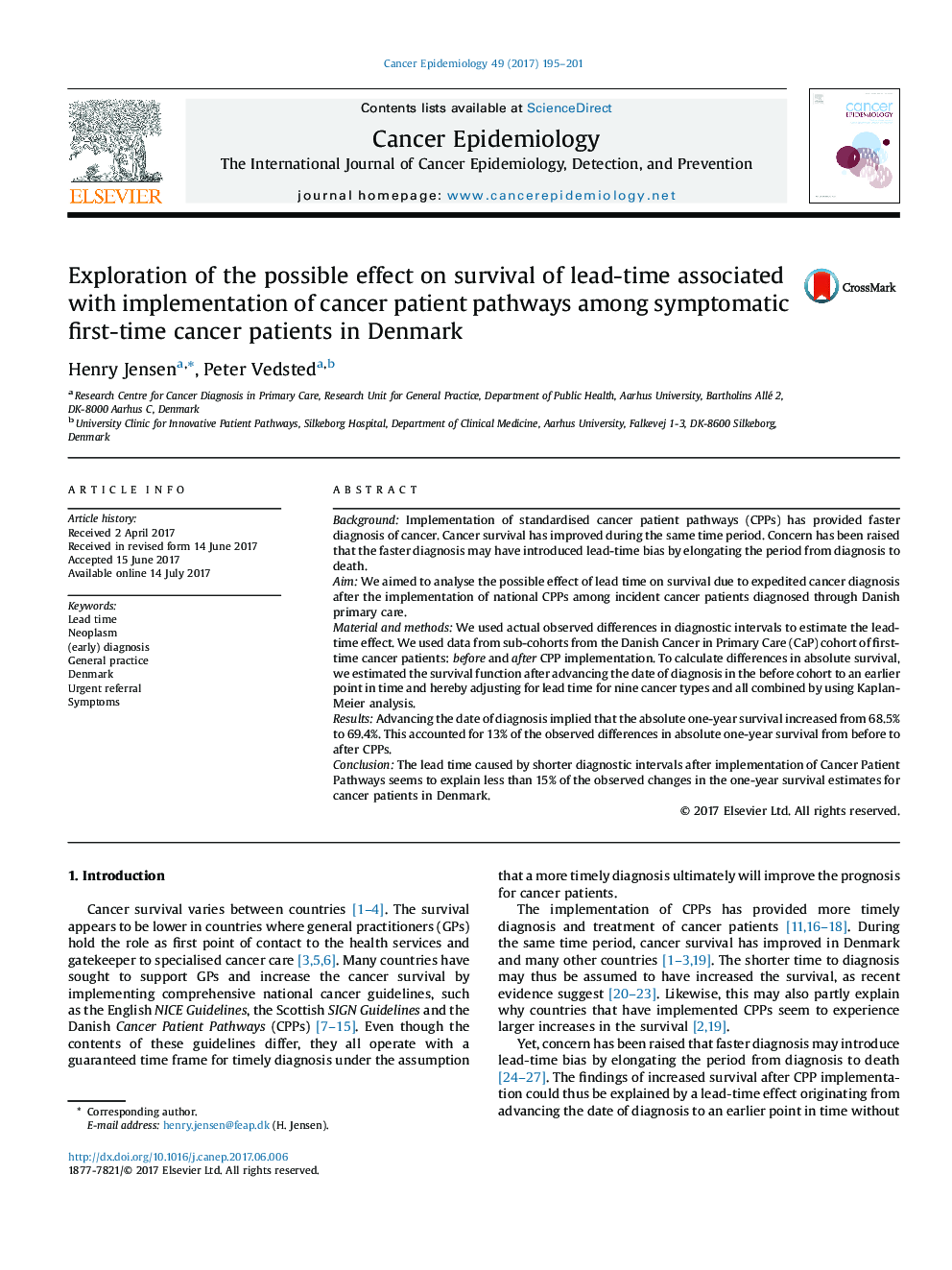| Article ID | Journal | Published Year | Pages | File Type |
|---|---|---|---|---|
| 5524795 | Cancer Epidemiology | 2017 | 7 Pages |
â¢Improvements in cancer 1-year survival is often criticised for being an effect of lead-time bias.â¢Implementation of fast tracks has induced lead time by faster diagnosis.â¢This study is the first to use real observed data to explore the impact of lead time from fast tracks.â¢Lead time can explain 13% of one-year survival improvement seen across the time of fast track implementation.â¢The survival improvement across time of fast track implementation seems mainly to reflect a true survival improvement.
BackgroundImplementation of standardised cancer patient pathways (CPPs) has provided faster diagnosis of cancer. Cancer survival has improved during the same time period. Concern has been raised that the faster diagnosis may have introduced lead-time bias by elongating the period from diagnosis to death.AimWe aimed to analyse the possible effect of lead time on survival due to expedited cancer diagnosis after the implementation of national CPPs among incident cancer patients diagnosed through Danish primary care.Material and methodsWe used actual observed differences in diagnostic intervals to estimate the lead-time effect. We used data from sub-cohorts from the Danish Cancer in Primary Care (CaP) cohort of first-time cancer patients: before and after CPP implementation. To calculate differences in absolute survival, we estimated the survival function after advancing the date of diagnosis in the before cohort to an earlier point in time and hereby adjusting for lead time for nine cancer types and all combined by using Kaplan-Meier analysis.ResultsAdvancing the date of diagnosis implied that the absolute one-year survival increased from 68.5% to 69.4%. This accounted for 13% of the observed differences in absolute one-year survival from before to after CPPs.ConclusionThe lead time caused by shorter diagnostic intervals after implementation of Cancer Patient Pathways seems to explain less than 15% of the observed changes in the one-year survival estimates for cancer patients in Denmark.
